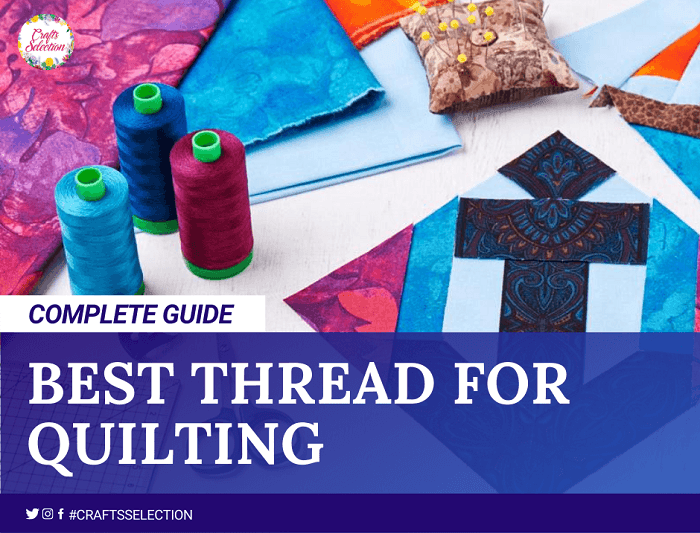Discover various information about What Is The Best Thread To Use For Quilting here, hopefully fulfilling your information needs.
My fingers traced the intricate patterns of the quilt, the vibrant colors and delicate stitches evoking a sense of timeless artistry. As I marveled at the beautiful threadwork, a question lingered in my mind: “What is the best thread for quilting, the thread that would hold these precious memories together for generations to come?”

What Is The Best Thread To Use For Quilting
To embark on this quest for the ideal thread, we must first delve into the rich history of quilting, an art form that has graced cultures for centuries. From the humble beginnings of using animal sinew to the advancements of modern synthetics, the choice of thread has evolved alongside the artistry of quilting.
Types of Quilting Thread
The world of quilting threads is a diverse tapestry, offering a multitude of options to suit different quilting techniques and styles.
Cotton Thread
Cotton thread, a natural fiber renowned for its breathability, comfort, and subtle sheen, has been a staple in quilting for generations. Its inherent strength and durability make it ideal for both hand and machine quilting, ensuring long-lasting results. Cotton thread is also versatile, suitable for various quilting techniques, including piecing, appliqué, and quilting.
Synthetic Thread
In the realm of synthetic threads, polyester and nylon emerge as the most popular choices for quilting. These threads are characterized by their exceptional strength, resistance to fading and fraying, and ability to withstand repeated washings. Their smooth texture facilitates easy gliding through the fabric, minimizing tension and breakage.
Silk Thread
For projects where opulence and elegance are paramount, silk thread offers an unparalleled level of refinement. Its smooth, lustrous surface adds a touch of luxury to quilts, creating a lustrous sheen that is both captivating and alluring. However, silk thread requires careful handling due to its delicate nature and susceptibility to fraying.
Choosing the Right Thread for Your Project
Selecting the perfect thread for your quilting project is a pivotal decision that can significantly impact the outcome. Consider the following factors:
Quilting Technique
Different quilting techniques demand specific thread characteristics. Hand quilting, with its gentle touch, favors the delicate nature of cotton thread. Machine quilting, on the other hand, benefits from the strength and durability of synthetic threads that can withstand the rigors of machine stitching.
Fabric Type
The type of fabric used in your quilt will also influence your thread choice. Natural fibers, such as cotton or linen, pair harmoniously with cotton thread. Synthetic fabrics, like fleece or microfiber, may require the added strength and durability of synthetic threads.
Thread Weight
Thread weight, measured in numbers, indicates the thickness of the thread. Thinner threads, such as 50-weight cotton, are ideal for delicate fabrics and intricate quilting patterns. Heavier threads, like 28-weight polyester, are suitable for heavier fabrics and bolder quilting designs.
Tips for Working with Quilting Thread
To achieve optimal results, heed these expert tips when working with quilting thread:
Use a High-Quality Thread
Investing in high-quality thread will ensure durability and longevity for your quilt. Cheap threads may break easily, resulting in frustrating delays and potential damage to your project.
Match the Thread to Your Bobbin
For machine quilting, it is crucial to match the thread used on the top of the quilt with the thread on the bobbin. This ensures consistent tension and stitch quality throughout the quilt.
Test the Thread Tension
Before embarking on your quilting journey, test the thread tension on a scrap of fabric. Proper tension will create balanced stitches that are neither too tight nor too loose, preventing puckering or skipped stitches.
Frequently Asked Questions about Quilting Thread
To address common queries related to quilting thread, we present this comprehensive FAQ:
- What is the best thread for hand quilting? Cotton thread, with its natural strength and delicate texture, is the preferred choice for hand quilting.
- Can I use regular sewing thread for quilting? Regular sewing thread is not suitable for quilting as it is not as strong or durable as specialized quilting thread.
- How do I prevent thread from fraying? Use a thread conditioner or beeswax to lubricate the thread, reducing friction and preventing fraying.
Conclusion
Embarking on a quilting journey is a delightful adventure, where the choice of thread is an integral part of the creative process. By understanding the different types of threads, considering your project’s specific needs, and following expert tips, you can elevate your quilting to new heights. Remember, the perfect thread, like a faithful companion, will support the beauty and longevity of your precious creations, ensuring that they become cherished heirlooms passed down through generations.
And now, dear reader, I invite you to explore further into the wonderful world of quilting threads. Do you have any burning questions or experiences to share related to this fascinating topic? Share your thoughts and let’s continue the conversation.
What Is The Best Thread To Use For Quilting

Image: www.pinterest.com
Thank you for visiting our website and taking the time to read What Is The Best Thread To Use For Quilting. We hope you find benefits from What Is The Best Thread To Use For Quilting.